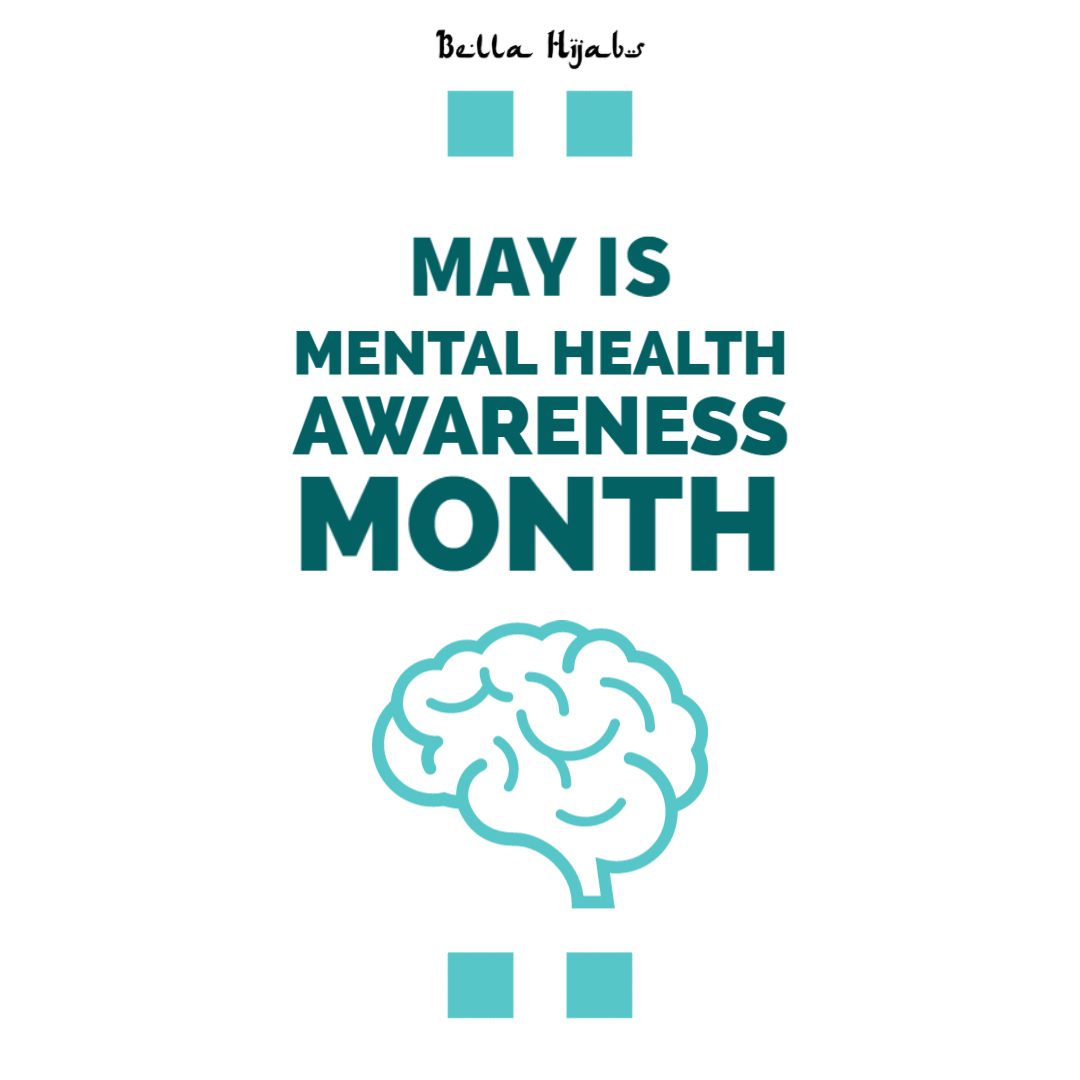
May is Mental Health Awareness Month, a time to raise awareness about mental health and to encourage people to seek help if they need it. This is an important topic for Muslims as well, as mental health is often stigmatized within Muslim communities. However, it is crucial for Muslims to care for their mental health in order to lead healthy, fulfilling lives.
In Islam, mental health is an important aspect of overall well-being.
Abdullah ibn Mas’ud reported: The Messenger of Allah, peace and blessings be upon him, said, “Allah did not send down any disease but that he also sent its cure.”مَا أَنْزَلَ اللَّهُ دَاءً إِلاَّ أَنْزَلَ لَهُ شِفَاءًSource: Sunan Ibn Mājah 3438
Grade: Sahih (authentic) according to Al-Albani
“I saw the Bedouins asking the Prophet (ﷺ): ‘Is there any harm in such and such, is there any harm in such and such?’ He said to them: ‘O slaves of Allah! Allah has only made harm in that which transgresses the honor of one’s brother. That is what is sinful.’ They said: ‘O Messenger of Allah! Is there any sin if we do not seek treatment?’ He said: ‘Seek treatment, O slaves of Allah! For Allah does not create any disease but He also creates with it the cure, except for old age.’ They said: ‘O Messenger of Allah, what is the best thing that a person may be given?’ He said: ‘Good manners.’”Source: Sunan Ibn Mājah 3436
Grade: Sahih (authentic) according to Darussalam
These statements emphasizes the importance of taking care of one's mental health, just as one would take care of their physical health.
There are many factors that can affect mental health, such as stress, trauma, and social isolation. These factors can be particularly challenging for Muslims, who may face discrimination, Islamophobia, and social isolation due to their faith. Additionally, many Muslims may struggle with the stigma surrounding mental health in their communities, which can make it difficult to seek help when needed.
It is important for Muslims to understand that seeking help for mental health issues is not a sign of weakness, but rather a sign of strength. It takes courage to acknowledge that one needs help and to take steps towards getting that help. Seeking help can involve talking to a trusted friend or family member, seeking therapy or counseling from a mental health professional, or utilizing other resources such as support groups or helplines.
There are many resources available to Muslims who are struggling with mental health issues. Many mosques and Islamic centers offer counseling services or can provide referrals to mental health professionals. There are also online resources such as Muslim Wellness Foundation and Khalil Center that provide culturally-sensitive and faith-based mental health services. See our master list here for more Muslim Mental Health Resources.
In addition to seeking professional help, there are also things that individuals can do to promote their own mental health. This includes taking care of one's physical health by getting enough sleep, eating a healthy diet, and exercising regularly. Engaging in activities that bring joy and relaxation, such as reading, spending time with loved ones, or practicing hobbies, can also promote mental health.
As we observe Mental Health Awareness Month, let us remember that mental health is an important aspect of overall well-being, and that seeking help for mental health issues is a sign of strength. It is important for Muslims to care for their mental health in order to lead healthy, fulfilling lives. Let us work together to break the stigma surrounding mental health in Muslim communities and to support one another in promoting mental health and well-being.
